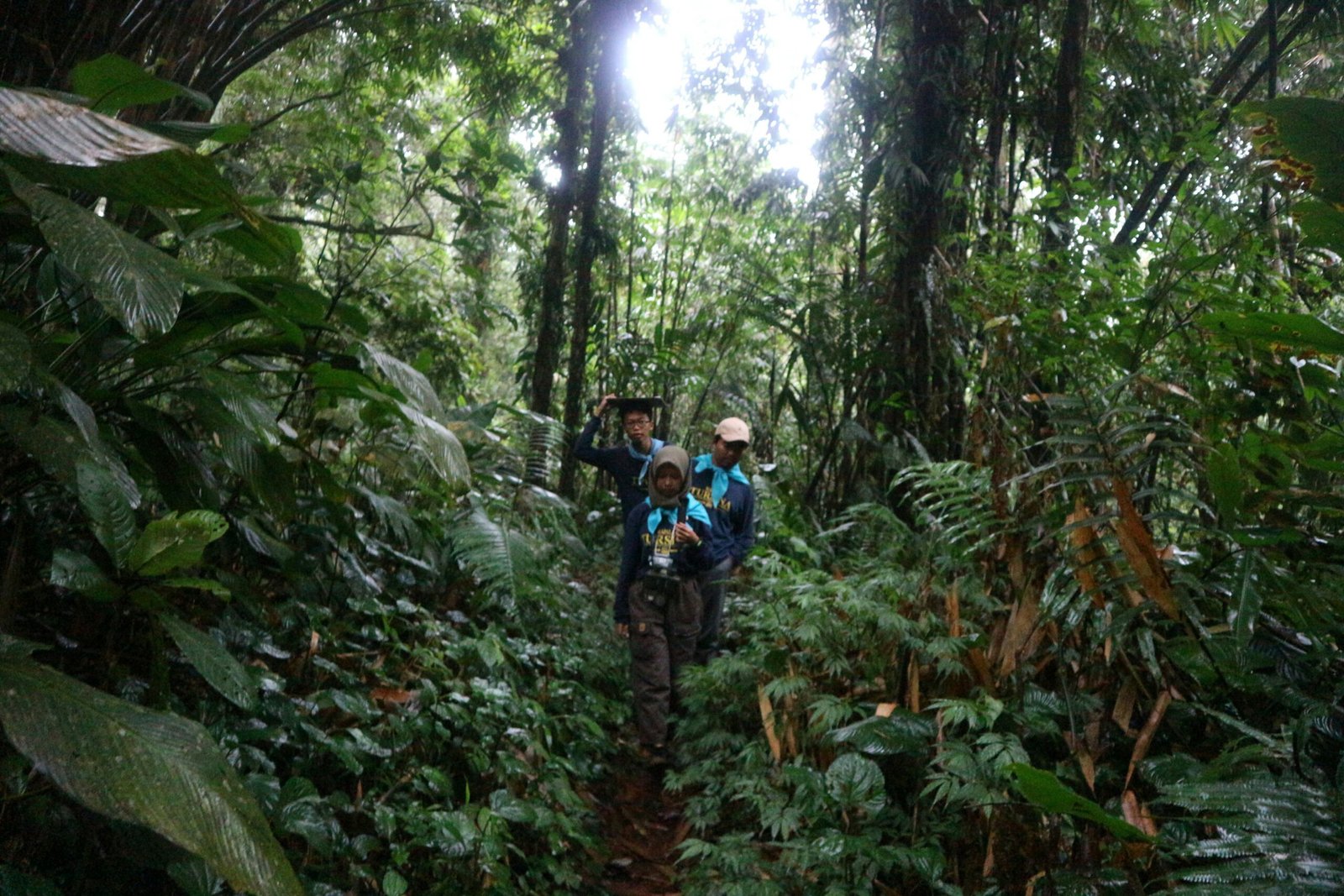Introduction to Responsible Travel
Responsible travel has emerged as a vital concept in the contemporary tourism landscape, emphasizing the need for travelers to reduce their environmental footprint while engaging in thrilling adventures. As the adventure travel industry continues to grow, more individuals are becoming aware of their impact on the destinations they explore. This shift towards sustainability signifies a growing recognition that our travel choices can significantly affect the planet and the cultures we encounter.

At the heart of responsible travel lies the integration of eco-friendly practices and ethical considerations into the travel experience. This approach encourages travelers to make conscious decisions that not only enhance their adventures but also preserve the natural environment and respect local communities. By adopting responsible travel principles, adventurers can enjoy their explorations while contributing positively to the ecosystems and societies they engage with.
The increasing frequency of climate change conversations and environmental degradation has kept the concept of sustainability at the forefront of travelers’ minds. Many individuals now seek experiences that allow them to connect with nature without causing harm to it. This trend highlights a crucial evolution in the adventure travel industry, where the emphasis has shifted from merely seeking adrenaline-pumping escapades to embracing opportunities that honor ecological balance and cultural heritage.
Responsible travel not only benefits the environment but also enriches the travel experience itself. Engaging in sustainable practices allows for authentic interactions with local cultures, encourages deeper connections with nature, and fosters a sense of stewardship among travelers. As the demand for sustainable travel options increases, adventure providers are also evolving, creating tours and activities that align with responsible travel principles.
Ultimately, embracing responsible travel signifies a transformative shift in the way we explore the world. It invites travelers to consider how their actions can impact the planet, encouraging them to become mindful adventurers who seek to enjoy rich, fulfilling experiences without sacrificing the health of the environment or the well-being of local populations.
Understanding Your Environmental Footprint
As individuals embark on their travel adventures, it is essential to comprehend what constitutes their environmental footprint. This term refers to the total impact that one’s activities, particularly during travel, have on the environment. Various elements contribute to an individual’s environmental footprint, encompassing modes of transportation, accommodation choices, and recreational activities. A clear understanding of these components will help travelers make informed and responsible choices without sacrificing their experiences.
Transportation is a significant factor in determining environmental impact. Different modes of transport, such as flying, driving, or taking public transit, have varying degrees of carbon emissions associated with them. Air travel typically produces a higher carbon footprint when compared to train or bus journeys. Therefore, opting for environmentally friendly transport alternatives, like electric vehicles or trains, can considerably lower one’s overall environmental footprint while traveling.
Accommodation choices also play a vital role in shaping environmental impact. Hotels and lodges vary widely in their sustainability practices. For example, eco-friendly accommodations often employ energy-efficient systems, utilize renewable resources, and promote recycling. By prioritizing such options, travelers can significantly minimize their carbon emissions during their stay. Conversely, choosing conventional hotels that lack sustainable practices can exacerbate one’s environmental impact.
Moreover, the activities one engages in while traveling can influence the overall footprint. Eco-tourism that emphasizes conservation and supports local communities tends to have a lower environmental impact compared to mass tourism that may exploit natural resources and wildlife. By choosing activities that are mindful of their surroundings, travelers can enjoy enriching experiences without compromising the ecological balance.
In conclusion, understanding your environmental footprint while traveling is crucial for adopting responsible practices. By being conscious of transportation, accommodation, and activities, you can contribute to a more sustainable travel experience and protect the planet for future generations.
Eco-Tours: How to Explore Sustainably
Eco-tours represent a growing movement in the travel industry, prioritizing sustainability and environmental stewardship while offering unique, immersive experiences. These excursions vary widely, ranging from wildlife safaris in Africa to kayak tours in the fjords of Norway, each designed to minimize ecological footprints and support local communities. The goal of eco-tours is not only to provide travelers with memorable encounters but also to foster respect for diverse ecosystems and wildlife.
For example, ecotourism in Costa Rica has gained recognition for its holistic approach to travel. Visitors can engage in guided hikes through lush rainforests where they learn about biodiversity while supporting local guides who depend on tourism for their livelihoods. Such tours often include opportunities to observe wildlife in its natural habitat, promoting appreciation and conservation efforts. Similarly, responsible whale watching tours in the Pacific Northwest are conducted with strict guidelines to ensure minimal disturbance to marine life, showcasing nature without compromising its integrity.
Another notable example is the rise of sustainable trekking opportunities in regions such as Nepal, where responsible trekking practices encourage environmental preservation. Trekkers can engage with local communities, learning about their culture while contributing economically to the region. These tours emphasize waste management, trail conservation, and the importance of leaving no trace, which are pivotal to maintaining the stunning landscapes that attract visitors.
As awareness for ecological impacts rises, many eco-tours are increasingly offering carbon offset programs, allowing travelers to balance their footprint while exploring. They also tend to focus on small group sizes, enhancing the intimate experience and reducing stress on natural resources. By choosing eco-tours, travelers not only embark on personal adventures but act as stewards of the planet, ensuring that future generations can also explore its wonders responsibly.
Choosing Local Guides for Authentic Experiences
Traveling responsibly encompasses a variety of considerations, one of which is the importance of hiring local guides. Engaging with a local guide not only enriches the travel experience, but it also fosters a connection with the culture and environment of the destination. Local guides possess an intimate knowledge of their surroundings, providing unique insights that cannot be found in guidebooks or online resources. Their perspectives often include historical anecdotes, cultural nuances, and insider tips that contribute to a more profound understanding of the area.
Another significant advantage of selecting a local guide is the economic benefit to the community. By opting for local services, travelers ensure that a larger portion of their spending remains within the destination, supporting livelihoods and promoting sustainable tourism practices. This not only helps to preserve the local way of life but also empowers communities to continue sharing their heritage and traditions with visitors.

Finding and vetting local guides can initially seem daunting, but there are practical steps to simplify the process. Begin by researching reputable local tour companies that prioritize sustainability and ethical practices. Online platforms and social media can provide valuable insights, as reviews and testimonials from previous travelers often highlight the quality of experiences offered. Additionally, look for local organizations or associations that certify guides, ensuring they meet necessary standards of professionalism.
When meeting a potential guide, inquire about their background and story. A good local guide should be passionate and knowledgeable about their culture, willing to share not just facts but also personal experiences. This can further ensure that the connection formed during the journey is genuine. In conclusion, selecting local guides enriches the travel experience while simultaneously contributing to the well-being of the communities visited, making it a choice of both authenticity and responsibility.
Sustainable Transportation Options
The concept of sustainable transportation is essential for environmentally conscious travelers who wish to minimize their carbon footprint while exploring new destinations. When considering the various modes of transportation, options such as biking, walking, and using public transport emerge as notable alternatives to traditional means like driving personal vehicles or utilizing taxis. These alternatives not only promote a healthier lifestyle but also significantly reduce emissions associated with travel.
Biking is one of the most eco-friendly modes of transport available, allowing travelers to not only appreciate their surroundings at a leisurely pace but also contribute to cleaner air. Cities around the world have been increasingly investing in bike lanes and rental services, making it more accessible and safe for travelers to opt for this option. Moreover, biking provides an excellent opportunity to engage with local culture, as cyclists often venture into less touristy areas, discovering hidden gems off the beaten path.
Walking is perhaps the simplest and most direct form of sustainable transportation. It requires no fuel, minimizes emissions, and offers a unique perspective of destinations that cannot be fully appreciated from a vehicle. By exploring on foot, travelers can also support local businesses, as they are more likely to stop by restaurants and shops along their routes. Cortically, walking tours are becoming increasingly popular, often led by locals who share insights about their neighborhoods.
Public transportation is another sustainable option for travelers, encompassing buses, trains, and trams. When comparing the carbon footprint of public transport systems to private vehicles, it is evident that shared transport can significantly reduce per capita emissions. Utilizing public transport allows travelers to interact with locals while navigating through a city, gaining insight into daily life. To enhance the sustainable aspect of travel, it is advisable to plan ahead—researching routes and schedules can maximize efficiency and minimize unnecessary delays.
Ultimately, choosing sustainable transportation options is vital for reducing the environmental impact of travel. By opting for biking, walking, or public transit, travelers can enjoy adventures without sacrificing their commitment to a healthy planet.
Accommodations that Promote Sustainability
When traveling, choosing accommodations that prioritize sustainability is essential for minimizing environmental impact and supporting local communities. To make responsible lodging choices, travelers should consider a checklist of criteria that signal a commitment to sustainable practices. First and foremost, it is beneficial to look for certifications that indicate adherence to eco-friendly standards, such as LEED (Leadership in Energy and Environmental Design) or Green Key. These certifications often assess energy efficiency, water conservation efforts, and waste reduction practices, ensuring that the accommodation meets high environmental standards.

Energy efficiency is crucial in sustainable lodging. Many eco-friendly hotels utilize energy-saving technologies such as LED lighting, energy-efficient appliances, and smart climate controls. Additionally, some establishments engage in renewable energy practices, such as solar panels or wind energy, to minimize their carbon footprint. Choosing lodging that invests in these technologies can enhance your overall travel experience while supporting environmental sustainability.
Waste reduction practices also play a significant role in sustainable accommodations. Look for hotels that implement recycling programs, composting initiatives, and strategies for minimizing single-use plastics. By selecting such accommodations, travelers contribute to reducing waste and promoting sustainability within their destinations.
Support for local communities is another vital factor. Travelers can express their commitment to responsible tourism by choosing hotels that source food and products locally, thereby stimulating the economy and creating jobs within the community. Additionally, consider accommodations that prioritize engagement with local culture and heritage, helping to foster a deeper connection between visitors and the places they explore.
By keeping these criteria in mind, travelers can confidently select accommodations that align with their values, promoting a responsible travel ethos while enjoying their adventures. This approach not only benefits the environment but also enriches the overall travel experience.
Engaging with Local Cultures Responsibly
Traveling presents an opportunity not only for exploration but for meaningful engagement with local cultures. Responsible cultural engagement ensures that travelers respect the customs and traditions of the communities they visit while avoiding the pitfalls of cultural appropriation. To navigate this delicate balance, it is essential for travelers to approach local cultures with an open mind and a respectful attitude.
One effective way to promote cultural exchange is through immersive experiences that allow travelers to engage with locals in a genuine manner. Participating in community-led workshops, culinary classes, or cultural festivals provides insight into the traditions and lifestyles of the host community. This interaction fosters deeper understanding and appreciation, rather than merely observing from a distance. For instance, learning how to cook traditional dishes or practicing local crafts not only enhances one’s travel experience but supports the local economy and promotes cultural preservation.
It is also crucial for travelers to educate themselves about the customs and norms of the places they visit. Before embarking on a journey, researching local etiquette, dress codes, and social practices can go a long way in demonstrating respect and consideration. This understanding helps travelers navigate social situations appropriately and prevents inadvertent offenses that can arise from cultural misunderstandings. Engaging in conversations with local residents can provide valuable insights and clarify any uncertainties regarding appropriate conduct.
Moreover, fostering positive relationships with locals can lead to more sustainable travel practices. Travelers should seek out locally-owned businesses, such as hotels, restaurants, and shops, to ensure that their contributions positively impact the community. By engaging responsibly with local cultures, travelers not only enrich their own experiences but also help safeguard cultural heritage for future generations, creating a harmonious blend of exploration and respect.
The Benefits of Responsible Travel
Responsible travel has garnered increasing attention as travelers acknowledge the significant impact their journeys can have on both the environment and local communities. By engaging in sustainable travel practices, individuals can contribute positively to the places they visit, ensuring that their adventures do not come at the expense of the environment or the cultural heritage of local populations.
One of the primary benefits of responsible travel is the preservation of natural resources. By choosing eco-friendly accommodations, supporting local businesses, and participating in conservation initiatives, travelers can help protect ecosystems and wildlife. This commitment to sustainability not only helps local environments thrive but also enhances the overall travel experience, allowing visitors to connect more deeply with nature and the communities they visit. Moreover, conservation efforts can lead to the development of new attractions and activities, further enriching the travel landscape.
Additionally, responsible travel fosters economic growth for local communities. When travelers prioritize supporting local artisans, tour guides, and eateries, they contribute to the local economy, creating jobs and opportunities for indigenous populations. This ethical engagement enriches the travel experience while allowing locals to share their culture and traditions. As a result, travelers gain an authentic understanding of the regions they explore, moving beyond a superficial tourist experience.
Participating in responsible travel initiatives often imparts a sense of fulfillment and purpose to the traveler. Engaging in activities such as volunteering for environmental projects or participating in cultural exchanges invites a deeper connection to the destination. Travelers return home not only with lasting memories but also with a heightened awareness of global issues, enriching their lives and perspectives.
In essence, responsible travel is a journey that provides myriad benefits, enhancing both the traveler’s experience and the well-being of the environment and local communities. This approach to travel allows individuals to embark on adventures without sacrificing their values or the places they cherish.
Conclusion: Adventure Awaits Responsibly
As we navigate our post-pandemic world, the importance of responsible travel has never been more evident. Travelers are increasingly recognizing the need to protect the environment, support local economies, and respect cultural heritage while embarking on their adventures. Throughout this blog post, we have highlighted the essential practices that not only align with these values but also enhance the overall travel experience.
One significant takeaway is that responsible travel does not equate to a sacrifice of the thrill and excitement that adventures offer. On the contrary, by choosing sustainability-oriented travel options, such as eco-friendly accommodations and ethical tour operators, travelers can engage in experiences that align with their values. This holistic approach to travel enables tourists to discover authentic local cultures, while minimizing their ecological footprint.

Additionally, exploring lesser-known destinations can provide unique adventures while preventing the over-tourism that often plagues popular hotspots. By venturing off the beaten path, travelers can contribute to the economic growth of underserved areas and find extraordinary experiences that enrich their journeys. Emphasizing awareness and choice, the act of traveling responsibly allows individuals to actively participate in preserving the beauty of our planet for future generations.
In essence, the world is ripe with possibilities for adventure that do not compromise ethical principles. Embracing responsible travel means embarking on journeys that celebrate diversity, promote sustainability, and respect the planet’s precious resources. We encourage readers to take this vision to heart and seek adventures that resonate with their values, ultimately fostering a more sustainable and love-filled relationship with our world.



